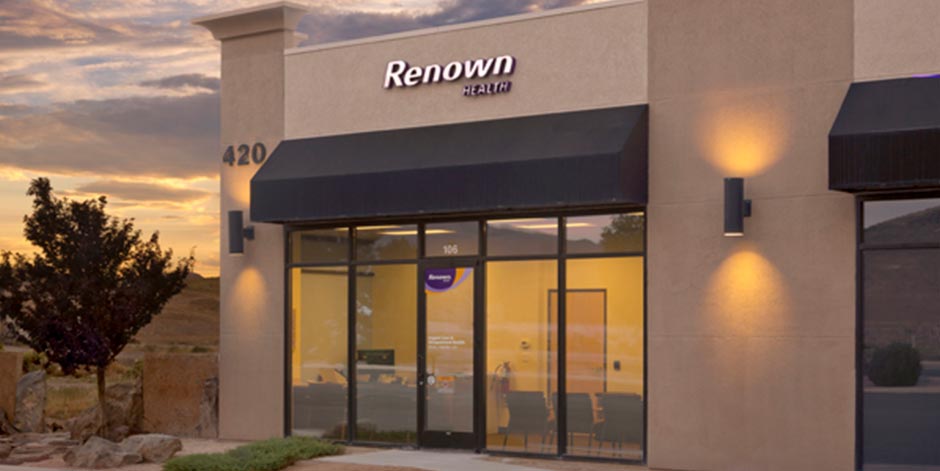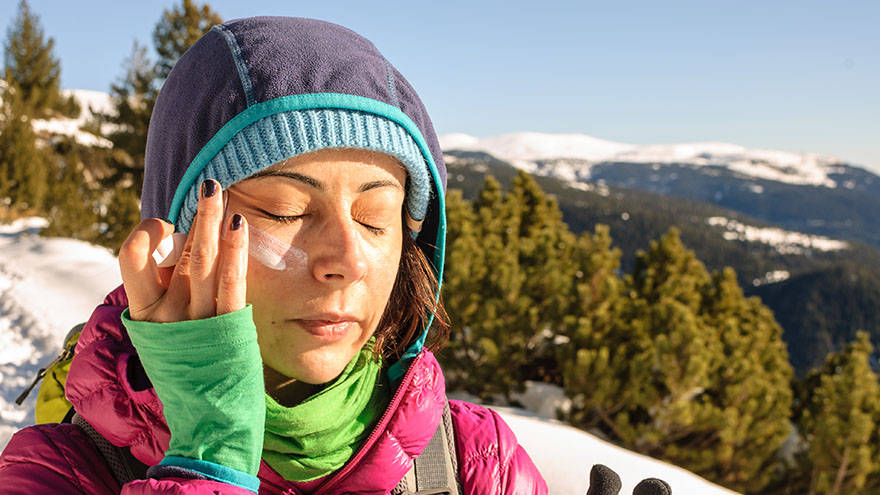Search
-
Renown Health In-House Lab Now Processing COVID-19 Tests for Patients and Care Providers
Expanded test processing capabilities is resulting in faster test results, lessening the load on the state lab, and helping keep patients, care providers and the community safe. Renown Health announced today that its in-house laboratory is now able to process up to 500 COVID-19 tests for hospital patients and care providers each day. The organization has invested in expanded test processing capabilities to better serve the community amid the coronavirus pandemic, and to increase testing available across the state. Next month, Renown anticipates continuing to further expand testing capacity and doubling its capacity to be able to provide 1,000 tests per day in preparation for the continued response to the pandemic. “The COVID-19 pandemic is not going away- it is still with us. I am concerned by the number of new cases and hospitalizations we are seeing across northern Nevada. We must do more testing. We need broader capabilities around making sure we have broad-scale surge testing available, so we can help people identify if they have COVID-19 or not,” said Tony Slonim, MD, DrPH, Renown’s President & CEO. “If I could test 60,000 people in northern Nevada for COVID-19, like we did for the Healthy Nevada Project, we could better understand with data and facts the proportion of people who actually have COVID-19 versus those that just have the sniffles and a cold.” Launched in 2016, the Healthy Nevada Project https://healthynv.org/ is a community-based population study where free genetic testing is provided to thousands of Nevadans to learn about the health of the community and each person’s genetic risks. As of Tuesday, 2,286 people in northern Nevada have been tested, and positive cases were nearing 700. Seventy four people in northern Nevada have died; 1,526 have recovered. https://www.washoecounty.us/ Dr. Slonim says it would help him and others make important decisions and plans for coronavirus with evidence. He wants to be able to test many more individuals across northern Nevada. “Testing is pivotal upstream, so you can prevent consequences downstream,” said Dawn D. Ahner, DSc, FACHE, Chief Operating Officer – Renown Acute Services. “By processing our own tests, we’ve reduced the turnaround to receive results to just 12-24 hours, which will have a profoundly positive impact on our community, and lightens the load on the State lab. “Testing is an incredibly important tool in our fight against coronavirus,” said Tim Stephens, vice president of ancillary services. “There's no 100% perfect test, however, the PCR tests are so incredibly sensitive, that when done perfectly, have a very low false-positive rate. Certified labs like Renown’s use a number of procedures to reduce the risk of false test results.” “The expansion of our lab’s new testing capabilities during this time is a testament to the innovative and important work being done here at Renown,” said Erik Olson, CEO of Renown Regional Medical Center. “Throughout the pandemic, our ancillary team, which includes services like laboratory, radiology and pharmacy, has been quick to adapt to the needs of our patients and our community. I am pleased that we are able to generate critical test results for patients and providers as we continue the fight against COVID-19 and go the extra mile for safety.” Going the extra mile for safety As an added safety measure, acute hospital patients; patients preparing for surgery, and care providers who may have come into contact with those positive for COVID-19, are among those that receive mandatory PCR testing from Renown at this time. For patients receiving hospital care, these tests help determine if patients should be placed in a designated area of the hospital to mitigate the risk of transmission to those not infected. Furthermore, all surgery patients are tested ahead of their surgery and self-quarantine prior to their surgical procedure at Renown Regional Medical Center and Renown South Meadows Medical Center. How do PCR tests work? PCR tests use a sample of mucus typically taken from a person's nose or throat. The test looks for the genetic material of the coronavirus, using a technology called PCR to detect if the viral genetic material is present. Those actively infected with the virus will show the existence of that material. Individuals who think they should be tested for COVID-19 are encouraged to call their medical provider or contact the Washoe County Health District at 775-328-2427 for a risk assessment. For up-to-date information on Renown’s approach to keeping our community safe, visit our website at renown.org/covid-19/. Please see b-roll for this story here. About Renown Health Renown Health is a locally governed and locally owned, not-for-profit integrated healthcare network serving northern Nevada, Lake Tahoe and northeast California. Renown is one of the region’s largest private employers with a workforce of more than 7,000. It comprises three acute care hospitals, Renown Children’s Hospital, Renown Rehabilitation Hospital, the area’s most comprehensive medical group and urgent care network, and the region’s largest and only locally owned not-for-profit insurance company, Hometown Health. Renown has a long tradition and commitment to continually improve the care and the health of our community. For more information, visit renown.org.
-
 Renown South Meadows Medical CenterRenown South Meadows Medical CenterHours
Renown South Meadows Medical CenterRenown South Meadows Medical CenterHours
Open 24 hours a day, 7 days a week, 365 days a year -
 Renown Lab Services - USA ParkwayRenown Lab Services - USA ParkwayHours
Renown Lab Services - USA ParkwayRenown Lab Services - USA ParkwayHours
Mon-Fri7 a.m. - 12 p.m.Sat-SunClosed -
Renown Dermatology
At Renown Dermatology, Laser & Skin Care, our experienced providers offer a wide range of services, coupled with advanced medical technology. Skincare services include dermatology and competitively-priced treatments and procedures. Our professional and compassionate staff focuses on promoting lifelong health and wellness in a relaxing, modern atmosphere.
-
Skin Care Specials
Seasonal Specials to Help You Stay on Point Revamp your glow without breaking the bank at Renown Health Dermatology! Explore our array of skin care products and services designed to make you look and feel sensational. Swing by our South Reno office to check out our latest product lines. Our skincare experts are on hand to help you navigate your beauty routine and answer all your questions. Dive into our summer specials, available until July 31, 2024. Why not indulge yourself or surprise a friend? Gift certificates are ready and waiting—perfect for any occasion!
-
Spine, Sports and Pain Management
How We Can Help You may benefit from treatment for neuromuscular (nerve, muscle and bone) disorders – that cause pain and impair normal functions. But, first, consult your primary care physician for a referral to Renown Health's Spine, Sport & Pain Management. Dr. Keating, Medical Director and his colleagues, Dr. Su and Dr. Storm, will customize a treatment plan that best suits your needs and lifestyle while providing the most effective care possible. For more information: Call 775-982-3608 | Fax 775-982-8001
-
Winterize Your Skin with These 5 Easy Expert Tips
Winter skin alert – cold temperatures can put your skin into chaos. We asked for skin tips from Heidi Nicol, an esthetician with Renown Dermatology, Laser & Skin Care. She shares how to keep your skin glowing through the frosty months ahead. With the change from warm to cold weather, your skin can get stressed out. In fact, issues like flaky skin, irritation and chapped lips can be an everyday struggle. 5 Easy Winter Skincare Tips 1. Re-think your shower Few things feel better on a cold day than a long, hot shower. But hot showers can lead to dry skin because they strip your skin of its natural protective oils. Avoiding them altogether is best – choose a lukewarm, or warm, shower instead. If you have an occasional hot shower, the American Academy of Dermatology (AAD) suggests keeping it at five to ten minutes. Nicol recommends using a gentle cleanser and avoid using too much. Moisturizing after a shower or bath while your skin is still damp is also a must. Slathering on your favorite lotion helps your skin hold on to precious moisture. 2. Stay away from smoke and fire Although sitting close to a roaring fireplace can feel good, it is drying to your skin. Smoking and exposure to smoke also harms your skin. Smoking reduces healthy blood flow to the skin. This also causes your skin to wrinkle faster, making you looker older. Additionally your skin heals much slower if you smoke. 3. Consider a humidifier Cranking up the thermostat dries out indoor air. Skin is our largest organ, and in general, heat is very drying to your skin. To clarify, over time dry air degrades your skin’s natural moisture (lipid) barrier leading to flaking, peeling and cracking. Your skin can overcompensate for the dryness by producing even more oil. In other words it is possible for your skin to be both oily and dehydrated at the same time. Even oily skin needs a daily lightweight, non-pore clogging moisturizer. 4. Use SPF daily The sun’s rays damage your skin even on cloudy days. Sunlight contains UVB (burning) and UVA (aging) rays. Although UVB rays are less strong in the winter, the UVA rays are same strength all year. And snow can reflect almost 90% of UV radiation. With this in mind make sure you have suitable skin and eye protection when going outdoors. 5. Take care of your hands and feet Don’t forget your fingers and toes when moisturizing. These areas tend to be drier than other parts of the body. Gloves help to protect hands from winter weather and lock in moisture. Similarly, putting lotion on your feet before your socks will keep them your skin from flaking and cracking. Follow the tips above to make sure your skin is at its best, despite the winter weather. Renown Dermatology, Laser & Skin Care | 775-982-8255 Renown Dermatology, Laser & Skin Care offers a comprehensive range of treatments and products to address any skin care need. Visit our beautiful office in south Reno and browse our product lines. Experts are available to answer any questions concerning your skin care and health and wellness needs.
Read More About Winterize Your Skin with These 5 Easy Expert Tips
-
5 Easy Winter Skincare Tips
Winter skin alert – cold temperatures can put your skin into chaos. We asked for skin tips from Heidi Nicol, an esthetician with Renown Dermatology, Laser & Skin Care. She shares how to keep your skin glowing through the frosty months ahead. 1. Re-think your shower Few things feel better on a cold day than a long, hot shower. But hot showers can lead to dry skin because they strip your skin of its natural protective oils. Avoiding them altogether is best – choose a lukewarm, or warm, shower instead. If you have an occasional hot shower, the American Academy of Dermatology (AAD) suggests keeping it at five to ten minutes. Nicol recommends using a gentle cleanser and avoid using too much. Moisturizing after a shower or bath while your skin is still damp is also a must. Slathering on your favorite lotion helps your skin hold on to precious moisture. 2. Stay away from smoke and fire Although sitting close to a roaring fireplace can feel good, it is drying to your skin. Smoking and exposure to smoke also harms your skin. Smoking reduces healthy blood flow to the skin. This also causes your skin to wrinkle faster, making you looker older. Additionally your skin heals much slower if you smoke. 3. Consider a humidifier Cranking up the thermostat dries out indoor air. Skin is our largest organ, and in general, heat is very drying to your skin. To clarify, over time dry air degrades your skin’s natural moisture (lipid) barrier leading to flaking, peeling and cracking. Your skin can overcompensate for the dryness by producing even more oil. In other words it is possible for your skin to be both oily and dehydrated at the same time. Even oily skin needs a daily lightweight, non-pore clogging moisturizer. 4. Use SPF daily The sun’s rays damage your skin even on cloudy days. Sunlight contains UVB (burning) and UVA (aging) rays. Although UVB rays are less strong in the winter, the UVA rays are same strength all year. And snow can reflect almost 90% of UV radiation. With this in mind make sure you have suitable skin and eye protection when going outdoors. 5. Take care of your hands and feet Don't forget your fingers and toes when moisturizing. These areas tend to be drier than other parts of the body. Gloves help to protect hands from winter weather and lock in moisture. Similarly, putting lotion on your feet before your socks will keep them your skin from flaking and cracking. Follow the tips above to make sure your skin is at its best, despite the winter weather.
-
Prevent Breakouts by Keeping Your Makeup Tools Clean
Did you know that your makeup brushes are likely full of built-up dirt and bacteria? Using dirty makeup tools can lead to irritation, breakouts and even infections. The good news? It's completely preventable. An expert explains For anyone who regularly wears makeup, brushes are great tools for powdering, contouring and finishing touches. Unfortunately, these same brushes also harbor harmful bacteria that can clog pores and cause unwanted breakouts. “Brush hairs and sponges are porous, and hold on to oils, debris and bacteria,” says Heidi Nicole, medical esthetician with Renown Dermatology, Laser & Skin Care. “Also, if they are dirty, the application of makeup can be spotty and make blending more difficult." Most dermatologists suggest that you clean your makeup brushes at least once a week. Because they are used on your face, it makes sense to keep them as a clean as possible. In addition, your brushes will last longer if you stay on top of cleaning them. Six simple steps to integrate makeup brush care into your beauty routine: Wet your brush with lukewarm water. (Don’t soak your brushes, as water in the brush barrel can cause the hairs to fall out.) Place a drop of gentle cleanser or specialized brush cleaner in the palm of your hand. Gently massage the tips of the bristles on your palm. Rinse the bristles well. Blot with a clean towel and reshape the head. Let the bristles dry over the edge of a counter. Do not allow the bristles to dry on the towel, which could cause the brush to mildew. Store your brushes in a clean, dry place in between uses.
Read More About Prevent Breakouts by Keeping Your Makeup Tools Clean
-
Concussion Risks and Prevention
It’s important to be aware of the risk of a concussion, which can have serious health implications. Susan Park, MD, discusses the effects of concussions and how they can be prevented. According to Susan Park, MD, a Renown Medical Group doctor who specializes in sports and family medicine, concussions are a serious issue — especially among children whose developing brains “are more susceptible to brain injury and long-term effects from concussions.” All parents, coaches and athletes, she points out, should be aware of the risks of concussions and take precautions to avoid them. What is a concussion and how does it occur? Dr. Park describes a concussion as a traumatic brain injury resulting from direct or indirect impact to the head or body, during which the brain shakes back and forth in the skull. This may cause some bruising of the brain. In severe cases, traumatic head injuries can cause bleeding, which if not treated quickly, can be fatal. What are the health implications of a concussion? Symptoms of drowsiness and confusion can be a sign of a concussion after a head injury. Some short-term effects may include headaches, dizziness and difficulty concentrating. Long-term concerns can further include mood disorders, sleep disturbance and problems with cognitive function-concentration, which may affect school performance. What sports carry the highest risk of suffering a concussion? Dr. Park notes participation in any impact sport can result in a head injury. But among school-age kids, she treats more concussions from football and soccer than any other sport. However, during the winter months, skiing and snowboarding injuries can be a common cause of concussions Any blow to your head, neck or upper body can result in a concussion with symptoms including, but not limited to, feeling dazed or confused, dizziness, nausea/vomiting or a headache. Initial treatment of concussions varies depending on severity. Rest, avoiding vigorous activity and a reduced school workload help young athletes recover after a concussion. Dr. Park notes that sometimes further imaging and an ER visit will be required. Otherwise, rest from activities is the main treatment, along with not returning to sports activities until further clearance from a healthcare provider.
-
11 Easy Ways to Prep Your Skin for Spring
As we begin to enjoy the springtime weather in northern Nevada, are you finding your skin less than tip-top shape? Here’s how to add moisture back in easy, natural ways. You don’t need to be a medical aesthetician: Dry, cold climates can often wreak havoc on your body’s largest organ — your skin. These tips from Renown Dermatology, Laser & Skin Care will quickly put moisture back and relieve dry, chapped skin. 11 Miraculous Moisturizing Tips Always wear broad-spectrum sunscreen, even during winter months. Don’t forget to use an SPF lip balm, too. Heaters dry out your skin. Use a humidifier to keep moisture in the air. (And try these simple tips to make sure you’re keeping that humidifier clean.) If your skin is dehydrated, try using a nighttime moisturizer during the day. Use a hydrating mask or moisturizing mask twice a week. Don’t forget your hands and feet. Apply a rich cream to the hands and feet at night and cover them with gloves and socks to restore moisture while you sleep. Drink plenty of water to stay hydrated. Try adding a hydrating serum to your morning and nighttime skincare routine to heal the skin. Use a gentle exfoliant to remove dry skin at least once a week, which helps your skin absorb your moisturizer. Apply body oil or lotion in the shower while your skin is still damp to trap moisture. Hot water dries out your skin, so turn down the temperature in the shower and bath. A little pampering goes a long way, and Renown’s medical aestheticians are here to help. Trained in skincare and advanced therapies, our experts can transition your skin to look healthy, youthful and rejuvenated.
-
Are You Using the Right Sunscreen?
Seeking protection for yourself and your loved ones from the intense sun rays at northern Nevada's elevated altitudes? With so many choices available, selecting the ideal sunscreen can be daunting. To guide you through this, we consulted Dr. Angela Walker, a dermatologist from Renown Medical Group, for her expert insights. Sunscreen Application Dermatologists recommend a broad-spectrum sunscreen with a minimum SPF of 30, but keep in mind that no sunscreen protects against 100 percent of UV radiation and that reapplication is necessary. “No matter the SPF, sunscreen must be applied adequately and frequently, meaning a quarter-sized amount to cover the face and neck and a full shot glass amount for the body when wearing a bathing suit,” said Walker. “Reapplication should be every 80 minutes.” Why not use a high SPF, such as 70 or 100? According to the Skin Cancer Foundation, they don’t offer significantly more protection than SPF 30 and mislead people into thinking they have a higher level of protection. Here’s the breakdown: SPF 15 blocks 93 percent of UVB rays SPF 30 blocks 97 percent of UVB rays SPF 50 blocks 98 percent of UVB rays SPF 100 blocks 99 percent of UVB rays Do specific populations require a higher SPF? Walker explains that infants, seniors, and those with a history of skin cancer must take precautions against UV radiation, as their skin is vulnerable. Sunscreen should be an absolute priority before spending time outdoors and avoiding prolonged sun exposure, wearing a hat with wide brim (recommended 4-inch brim) and UPF (ultraviolet protection factor) clothing. Due to the sensitive nature of an infant’s skin, babies under six months should not spend time in the direct sun. For infants and toddlers six months and older, whose skin is thinner than adults, a sunscreen that contains zinc oxide or titanium dioxide (physical protectors) should be applied. Zinc and titanium are less likely to irritate because they do not penetrate the skin and instead sit on the surface and deflect UV radiation. Zinc oxide and titanium dioxide are vital ingredients to seek out in sunscreen due to their strong ability to deflect UV radiation. Sunscreen Terms Explained UVA = Long wave ultraviolet light. Penetrates deep into the dermis, the skin’s thickest layer, causing tissue damage that wrinkles and photo-aging and contributes to developing skin cancer. UVB = Short wave ultraviolet light. The biggest contributor to the development of skin cancer and are more prevalent during mid-day. SPF = Sun protection factor. Calculated by comparing the amount of time needed to burn sunscreen-protected skin vs. unprotected skin. So, SPF 15 means you can stay in the sun 15 times longer than you could without protection.








